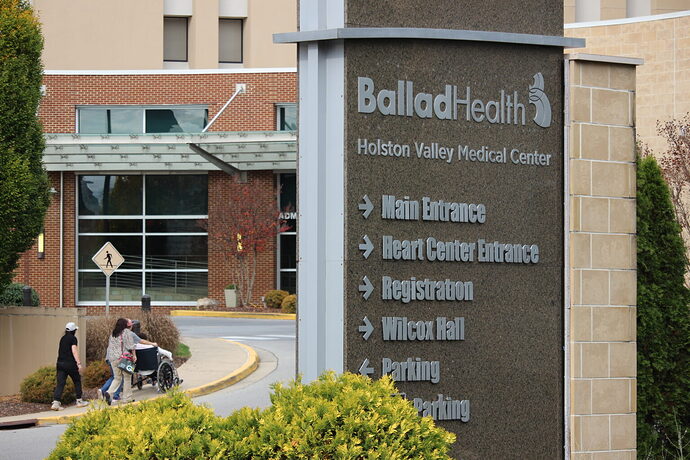Ballad Health: Last Place in Care, First Place in Excuses—Courtesy of Our Politicians
Six years ago, our elected Southwest Virginia’s State Delegates and Senators thought they’d hit on a brilliant plan. In their infinite wisdom, they waived federal antitrust laws and greenlit the merger of Wellmont and Mountain States, creating the largest state-sanctioned hospital monopoly in the nation. What was sold to us as a lifeline for rural healthcare has instead turned into a chokehold on patient care across Southwest Virginia and Northeast Tennessee. And now, with Ballad Health ranked dead last out of 200 healthcare systems in nurse satisfaction, the only thing more alarming than this monopoly is the silence from the lawmakers who enabled it.
Welcome to Ballad Health: Where Patients Are Afraid to Be Treated
Take Jerry and Katherine Qualls, for example. When Jerry had a heart attack, Ballad’s flagship Holston Valley Medical Center essentially threw up its hands and gave him a death sentence. Katherine, defiant and resourceful, demanded he be transferred to Nashville, where he not only survived but received a lifesaving heart transplant. Makes you wonder how many families don’t know to demand better care—how many people have paid the ultimate price for Ballad’s failures?
And this isn’t a one-off. Patients and their families report waiting 12 to 14 hours in the ER, dealing with staff shortages so severe they call it “paper-thin,” and suffering delays for critical treatments. A retired healthcare professional even warned she’d rather uproot her life and move to Atlanta than risk being treated in a Ballad facility.
Ranked Dead Last—And It Shows
Ballad’s performance speaks for itself. Ranked 200th out of 200 large healthcare systems for nurse satisfaction in a 2023 MIT business review study, the morale—or lack thereof—among its staff is a glaring symptom of a broken system. Nurses unhappy, overworked, and leaving in droves lead to poorer patient care, longer waits, and worse outcomes. Ballad CEO Alan Levine dismissed the study as “unscientific.” Well, if they’re ranked 200th, it doesn’t take a scientist to figure out the problem.
Ballad has failed to meet three-quarters of the quality-of-care goals set by Virginia and Tennessee in the last three fiscal years. High infection rates, rising mortality, and marathon ER wait times paint a picture of a system more concerned with preserving its monopoly than protecting its patients.
Excuses, Excuses
Levine, of course, blames everything except the merger. Staff shortages? That’s the pandemic’s fault! Rising death rates? Happens everywhere! But when you rank last among 200 systems, it’s not “everywhere”—it’s you. Levine claims that individual medical decisions—not systemic problems—are to blame for patient complaints. Funny how Ballad’s monopoly always seems to escape accountability for its systemic failures, even as lives are lost.
The Accountability Black Hole
Let’s not forget who gave Ballad the monopoly to begin with: our Southwest Virginia State Delegates and Senators. They sold us this merger as the savior of rural healthcare. But six years later, we’ve got rural hospitals that patients are terrified to enter, staff at their breaking point, and healthcare outcomes that are an embarrassment. Instead of speaking up, our lawmakers are conveniently silent.
Ballad’s monopoly didn’t just happen—it was handed to them by legislators who rubber-stamped the deal. We’re not even going to address their well paying board appointments. And now, instead of stepping in to address this disaster, they’re nowhere to be found. Why? Perhaps it’s easier to count campaign contributions than to count the complaints of patients and staff.
Last Place, First in Failure
With Ballad ranking last among 200 systems and patients fleeing to other states for care (Pikeville Medical Center for example), the message from our legislators is clear: they bet on the wrong horse, and we’re paying the price. Ballad’s failures are a direct result of a monopoly that never should have been allowed, and the lawmakers who made it happen owe the people of Southwest Virginia more than just excuses—they owe us accountability and action.
Until then, the legacy of this merger won’t just be bad press or poor rankings—it’ll be lives lost, trust broken, and a healthcare system in free fall. And that, my friends, is what last place looks like.
–Mountain Bee Satire
